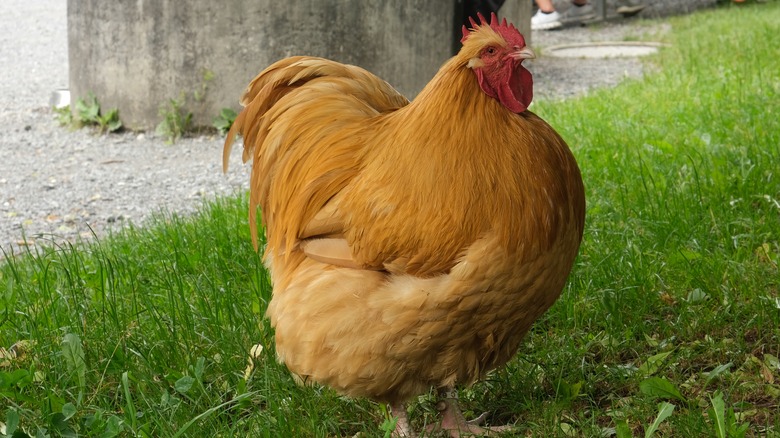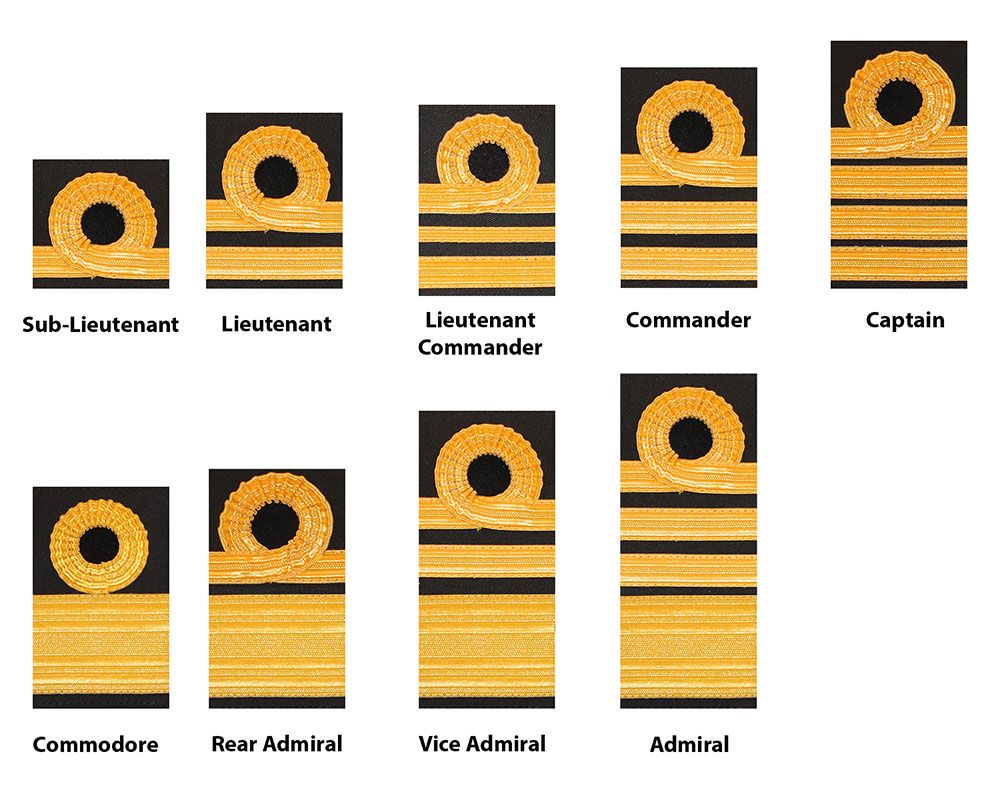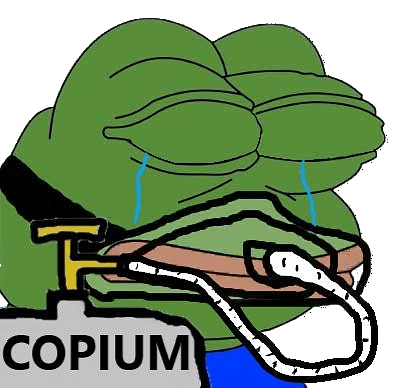- Mar 2025
-
higherenglish.pages.dev higherenglish.pages.devHome19
-
‘They’re no daeing onything to your caur,’ said the voice
The locals speak with a thick Scots dialect, which contrasts with the Jacksons’ posher English which they have acquired thanks to their new lives.
-
‘I was just paying a visit,’ he said. ‘ I used to live here.’
Suggests that he never intended on doing much here and is visiting more as a tourist, viewing the place as an unusual sight rather than the home he once knew it to be.
-
I was just telling them not to scratch my car
Shows him to be somewhat paranoid, ironically afraid of any minor scratches to his car, despite being in a neighbourhood which is derelict beyond repair. Highlights his disconnect from his surroundings and from his roots.
-
his wife, sheltered behind glass
Links back to her reluctance to go near even the buildings, let alone the people of this town. The car window acting as shelter from the youths reflects how her wealthy network in South Africa is shielding her from the reality of the outside world.
-
the children in the front rows keeping up a continual barrage of noise, the ushers hushing them, the smoke, the warmth, the pies slapping against faces, the carved cherubs in the flaking roof blowing their trumpets.
The list here emphasises the number of (questionably) fond memories that Mr Jackson has, showing him to be almost daydreaming or lost in thought.
-
No gaslight there now.
See below (▼)
-
an empress surrounded by prairie dogs.
Emphasises the wife’s (sense of) superiority over the locals through the use of imagery, comparing her to someone of great power and beauty, while they are mere rodents.
Also shows (and almost mocks) her excessive flamboyance and ostentation, which was symbolised earlier through her fur coat.
-
he heard the blast of a radio playing a pop song.
Contrasts the old “gaslight” that used to be there, again illustrating the change that has occurred over the past 35 years and suggesting that modernisation has ruined the community (in Mr Jackson’s slightly dodgy view).
-
To hell with her. She couldn’t drive anyway.
Reinforces the anger that this dispute is causing them both, and also highlights the power imbalance - despite being quite bossy and arrogant, Mrs Jackson is unable to do anything here as she is relying on him to leave before she can.
-
‘Shut up,’ he shouted, ‘you didn’t even have proper table manners when I met you.’
Mr Jackson is rather frustrated with his wife’s rudeness and disinterest, and begins arguing with her, suggesting again that their relationship is nowhere near as strong as it once was.
This line is also interesting as it provides a secondary viewpoint which contrasts his wife’s comment about driving him to the top, suggesting that what she claims may not be wholly truthful.
-
She turned on him. ‘What are you bringing that up for? Why don’t you forget it? Do you enjoy thinking about these things?’
The wife is evidently sick of her husband reminiscing about their old life here, and has been trying to get him to shut up. Since he is persisting though, she has had enough and rudely tells him to stop through a series of rhetorical questions.
-
The floor and the ceiling and the walls seemed to have drops of perspiration and Manson had a brown flannel cloth wrapped round his neck. He couldn’t breathe. And he heard the mice scuttering behind the walls.
Further paints the picture of this community as having been highly impoverished, even back when the Jacksons lived there, which contrasts with their current wealth.
-
You’d go out ferreting when you were here. You liked being with the boys.
Mrs Jackson portrays her husband’s socialising and his general behaviour in a negative light so as to humiliate him since she wants him to face the reality of this place and leave.
-
What do you want? That they should all wave flags? That all the dirty boys and girls should line the street with banners five miles high?
Mrs Jackson uses numerous rhetorical questions here to mock her husband’s attitude and to humiliate him into giving up on chasing these memories.
-
But then a black would buy a bicycle and forget all about his humiliation. Blacks weren’t like us
This transitory moment of regret (▲) is immediately disproven as Mr Jackson makes a rather confusing comment about black people and bicycles, implying that his racism and prejudice is baseless and shows a serious lack of awareness.
-
They’re all dead and rotting and we should be back in Africa where we belong.
Mrs Jackson expresses an explicit lack of care for her old life, bluntly telling her husband that their old neighbours are "all dead and rotting."
She feels that her true home is in South Africa and has forgotten entirely about her past, while Mr Jackson is torn and feels the need to discover where he truly belongs.
-
‘Whit dae ye mean?’ – like a bull wounded in the arena.
The description as "wounded" suggests that he lacks any appropriate response and is defenseless to his wife's remarks.
The metaphor of Mr Jackson being a "bull... in the arena" characterises him as a strong but somewhat stupid man.
-
Remember it was me who drove you to the top.’
Mrs Jackson arrogantly claims that he should be thankful for her bringing him to where he is, which shows how much the money has changed her.
Given how she is presented in Mr Jackson's stories, it appears as if they were on an equal level and had mutual respect for each other back then, but she now seems to view the marriage only as a symbol of status.
-
And do you mind the man who used to come down the passage at interval spraying us with disinfectant?
Mr Jackson recalls these stories in an ironically positive way given the clearly unpleasant subject, which again demonstrates how his perception of the past has been altered over time.
-
-
higherenglish.pages.dev higherenglish.pages.dev
-
see whether anything was stirring in the world around him
Gives the implication that not much happens in this village, portraying the monotony of the villagers’ lives.
-
Murdo
Murdo is a typically Scottish name, which hints at the setting of the story being within a remote Scottish village.
-
Hallowe’en
Introduces the theme of the supernatural, which links to the mystery of the red door being painted.
-
- Feb 2025
-
higherenglish.pages.dev higherenglish.pages.devHome60
-
he could see the Clyde, the ships and the cranes
Provides a concrete reference as to the setting, as everything up until now has been inferred through slang and historical knowledge.

-
Yes, didn’t I just?
Despite her lack of affection, he is still trying to keep the conversation positive, but she seems to be quite argumentative and unforgiving.
-
‘And you made a clown of yourself,’ she said unforgivingly
His wife seems very unsympathetic and avoidant, refusing to accept her past self. She has moved so far away from her life of poverty that she is horrified by the thought of it and therefore is insulting the man she once loved.
-
‘Do you mind that night?’ he asked contritely. ‘You were standing by the wall and I went up to you and I said, “Could I have the honour?”
He appears to remember their hook-up fondly, appreciating what they had at the time, even if it wasn't as glamorous as they are now used to. On the other hand... (▼)
-
You weren’t brought up in a fine house either. You worked in a factory till I picked you up at that dance
The relationship between Mr and Mrs Jackson seems to be quite unstable, with them frequently arguing over trivial matters, like in this case, how they met.
This shows how much they have changed as people and their marriage has deteriorated, potentially signalling that they are only married as a sign of status and not because of true love.
-
What’s he but a doctor anyway? I’m not ashamed of it
Suggests that he doesn't care what they would think of him since they are of lesser or equal status to him. He sees him as a doctor and nothing more - not as a person nor a real friend.
-
Or do you want to take a photograph and show it to them?
Suggests that the only reason they are visiting here is as tourists, which is what they are told later by the locals. Implies that she especially doesn't care about the past and sees this as a mere visit, whereas he originally came with the intention to reconnect with his old community (or so he thought.)
-
What would they think of you, I wonder
Mrs Jackson's unkind attitude towards their roots may also be influencing her husband's thought process, explaining why he was trying to deny his connection in the previous sentence.
-
I wasna born here. I just lived here for five years
Despite it clearly being a major part of his identity and heritage, Mr Jackson tries to deny or undermine his connection to this place. He likely shares some of the same sentiment about their friends as his wife, although to nowhere near the same extent.
-
There was no need to come here at all
Mrs Jackson probably feels as if she's being dragged along unnecessarily on her husband's adventure to discover his true identity and home.
He has fond memories and wants to confirm them, while she thinks of their time in Glasgow as a distant event never to be revisited.
-
What would the Bruces say if they saw you running about in this dirty place like a schoolboy?
Introduces the idea of the wife's focus on her image. She seems to be worried about what their friends in South Africa would think of them visiting somewhere run-down like this.
-
the flat-faced shops looked back at them blankly
Personification of the shops that used to be lively, bustling markets and have been reduced to bland, uninspired storefronts. This is done to draw attention to the degradation of the town due to deindustrialisation and modernisation.
May also highlight how they are unwelcome here in their hometown since they have changed so much (i.e. the flat-faced shops represent the minds of the locals)
-
Ye widna like to be daeing that noo
His sarcastic use of Scots here has a dual effect: it does show that he feels at home to some extent, but it may also just be him mocking his past self as a means of detaching himself from any sentimentality related to the area.
-
For a moment he did in fact see himself as a black, cringing in that rotten office, suffering the contempt, hearing the black rain dripping behind him from the furled umbrella
Suggests for a moment that he comes near to regretting his actions against black people, as he has some understanding that he is the one inflicting this suffering upon them now. This, unfortunately, doesn't end up coming to anything (▼)
-
What do you want?
Immediately asking him what he wants portrays the factor as quite cold and heartless as he clearly doesn't care about his clients.
-
past the dispirited receptionist in the glass cage
Suggests that even the other workers here are unhappy with their lives, contributing to the idea that perhaps Glasgow was, in reality, a horrible place for Mr Jackson.
-
I was treated like a black. That’s what it amounted to. By God, like a black
Shows Mr Jackson's highly racist mindset, particularly in saying "By God" when referring to them as this suggests that he is appalled to even be compared to a black person.
This line is also ironic as although he understands that he was "treated like a black," he doesn't seem to understand that people like him (Apartheid in South Africa) are the very reason for this.
-
He wished himself that the factor was alive now so that he could show him his bank balance
Again characterises Mr Jackson as hypocritical as now that the tables have turned, he wishes to put others in the same exact position he despised being in.
-
The wee nyaff. The Scottish words rose unbidden to his mouth like bile
The fact that he thinks of this Scottish slang as something sickening like "bile" suggests that he feels resentment for his country of birth, which has been amplified by this trip.
-
At that moment he had been filled with a terrible reckless anger
Even recalling this bad memory makes Mr Jackson feel an overwhelming hatred as he realises now how poorly he was treated.
-
And I’m saying it again. I’m a busy man. I’ve got a lot to do
This is a plausible explanation, but it also highlights how the factor prioritises his jobs. He seems to think that people of a lower social status deserve to wait longer than his richer clientele.
-
How much do you pay Jackson?
Suggests that the factor is only motivated by money and has no sense of charity for others.
-
an umbrella dripped what seemed to be black rain
The colour black is used here to represent the gloom and misery of poverty. The symbolism of the umbrella is presumably similar, relating to the rain, and by implication, feelings of depression or melancholy.
-
as if even giving words away were an agony of the spirit
Hyperbole to emphasise just how unkind the factor was (at least in Mr Jackson's eyes) - suggests that he is so mean and stingy that he is unwilling to even speak.
-
And what do you expect for fifteen shillings a week?
Portrays the factor as particularly ungenerous, as he sounds very unwilling to respond to those who are less fortunate than him and cannot provide him with financial gain.
-
He imagined what he would do to that factor now
The narrator explains Mr Jackson's thought process and how he clearly holds grudges against those who wronged him. We get the implication that he has quite violent ideas in mind as to what he would do in revenge.
-
In those days of poverty
Links back to when the Jacksons were still the inferior ones, living off of limited money, whereas now they have acquired a large sum of wealth and are flaunting that to everyone who is in the same situation that they were.
-
The coal-houses were incredibly still there, all padlocked and all beside each other, with discoloured doors
The "discoloured doors" imply that the place has fallen into ruin, likely since people have seldom visited it, hence why it has remained padlocked.
-
Do you mind old Hannah?
They seem to have nicknames for many of their old neighbours, which suggests that there used to be a strong sense of community, even if it was often based around negative things.
-
coal-house
A building or enclosed space where coal was stored.
-
He wondered vaguely what had happened to her
The fact that he only "wondered vaguely" suggests that he doesn't really care about her, but is merely curious. This likely reflects their unfriendly, uncaring attitudes towards others.
-
She kept her fur coat as far away from them as she could
Shows Mrs Jackson to be overly avoidant of dirt as she doesn't want to contaminate her luxuries with this horrible place. She is both physically and metaphorically distancing herself from the place she used to live.
-
the wallet bulged from his breast pocket
More evidence of his wealth and sense of safety (or stupidity) since he isn't afraid to show this, even in a dangerous area.
-
He wanted to tell someone how well he had done but how could he do that?
Having achieved a position of power and wealth, Mr Jackson now feels the urge to boast to others, but understands that there is no longer anyone here to boast to. This ultimately characterises him as quite arrogant and egotistical.
-
Instead of small shops supermarkets were springing up, flexing their huge muscles
Emphasises the change that the area has seen, but that Mr Jackson cannot seem to accept. Nothing is as he recalls as the place has grown and the places he remembers have been replaced.
-
people shuttled out to huge featureless estates where the windows revealed the blue sky of TV
Suggests that the quality of the new houses has worsened, or at least lost any of its personality and soul. They are no longer like homes and are mere buildings, hinting at the negative effects of modernisation on society.
-
Now the old tenements were being knocked down
Deindustrialisation was a major issue in Glasgow during this time period (roughly the 1960s), and refers to the socio-economic change that results from the removal of industrial activity in a region.
By destroying old buildings and decommissioning factories, many people were made homeless and unemployed, which led to a downfall in the economy and a rise in violent crime.
-
‘I remember,’ she said.
Despite clearly having vivid memories of her old life, Mrs Jackson only responds to her husband with short replies that seem to lack intrigue, reinforcing the idea that she is trying to forget about that whole period.
-
The next day his wife would descend the stair, her eyes black and blue, and say that she had stumbled at the sink. Her repertoire of invention was endless
Tells us that Mrs Jamieson was subjected to serious domestic abuse, and was afraid to come out about it. The fact that this was noticed by Mrs Jackson (and presumably the others), but nothing was done to intervene lets us know that this isn't anything rare.
-
uprooting chairs and wardrobes till the silence of exhaustion settled over the flats at about one in the morning
Gives a sense of how unpleasant and aggressive a place this is by conveying the magnitude of his fury and abuse. It is also suggested that this was quite a regular occurrence, making the whole thing sound very distressing.
-
He would walk like a victorious gladiator up the stair
The simile here suggests that he feels proud of taking part in these fights, linking to the ideas of gang violence and social division.
-
neat as a ray or razor
Creates a sense of danger due to the imagery of sharpness and precision, which could be emphasising the dangerous nature of life in impoverished urban areas.
Alternatively, this can be viewed as conveying the sense of neatness, which could highlight Mrs Jackson's contempt for her old neighbours.
-
Every Friday night he would dress up in his best blue suit
Mockery of the Jamiesons, which links on to the idea of him being blue from the bruises he received while fighting.
-
or more likely three Catholics
The additional remark that it was likely more than one highlights the violent nature of Glasgow, even back then. This directly contradicts what Mr Jackson seems to remember, thinking of the place as quite safe and peaceful.
-
his face bruised a fine Protestant blue, his clothes dirty and brown
Here, the mention of the colour blue emphasises the religious divide since the blueness was presumably not present due to his religious beliefs; rather because of the beating he received.
-
The Jamiesons had lived above them and were, of course, Protestant
Introduces the religious divide that was present in their neighbourhood as the wife's thoughts of the Protestants are clearly of spite, hence why she (the narrator; her thoughts) remarks "of course" in reference to them.
The fact that they "lived above them" could also be, to some extent, symbolic of the social hierarchy, suggesting that the Jacksons felt as if they were inferior to the others at the time.
-
She remembered but took no pleasure in the memory
Again shows their differing attitudes. He is proud of his roots and remembers the neighbours somewhat fondly, while she seems to have tried to forget about them now that she has achieved (what she views as) success in life
-
the whole thing painted a distasteful green
The choice to use the word 'distasteful' here emphasises the wife's dislike of her neighbours, with her opinions potentially exaggerated by her memories.
-
Not that at that level you could distinguish Catholic from Protestant
The third person narrative reveals the wife's thoughts and prejudiced opinions towards her old neighbours, whom she looks down upon, as is proven by the phrase "at that level."
-
Somebody had written in chalk the words YA BASS
A Glaswegian slang term derived from "you bastard", used frequently by violent gangs in the 1960s. Indicates the hostility of the environment, which Mr Jackson is seemingly unaware of.
-
into the close whose walls were brown above and a dirty blue below, pitted with scars
Illustrates the poverty present within the neighbourhood (and much of urban Glasgow during this period) by suggesting that there is a lot of physical ruination and that repairs are few and far between.
-
Her face had a haggard brownness like that of a desiccated gipsy and seemed to be held together, like a lacy bag, by the wrinkles
Characterises Mrs Jackson as quite old, fatigued, and even fragile. The metaphor of being "like a lacy bag" portrays her as quite delicate, not only physically, but mentally too as she is unwilling to recall her past.
-
His wife in furs got out more slowly
Mrs Jackson seems far more reluctant to get out and explore this place, likely as she disapproves of it and is much keener on her luxuries, which is symbolised through her fur coat.
-
looking around him and up at the sky with a hungry look as if he were scanning the veldt
A veldt is a large, open grassland situated in southern parts of Africa, typically blanketed by numerous small shrubs. The term originates from the Afrikaans word for 'field', therefore linking the story to South Africa.

-
with the cheerful animation of one who had left it
Suggests that he is excited to be back here, but not solely for nostalgic reasons; also because he is arrogantly proud of his newfound wealth and wants to brag to those who he knew.
-
But they don’t steal things here
Demonstrates Mr Jackson's naivety and unrealistic sense of his surroundings. He seems to have overly positive memories of his old home, a phenomenon known as rosy retrospection.
-
‘Lock the car, dear,’ said his wife
Although her husband is quite eager to revisit his old home, Mrs Jackson feels immediately unsafe upon entering the area, telling him to "lock the car" as a safety precaution.
-
On one finger of his right hand was a square red ring
Suggests that he is quite pretentious as he feels the need to flaunt his wealth by means of wearing expensive jewellery to an impoverished neighbourhood.

-
He was a big man with a weatherbeaten red-veined face and a strong jaw
Makes him come across as quite strong, powerful, and imposing, yet this contradicts what we later see of him, which parallels the way that his view of his old life has been distorted with time.
-
The black polished car drew up outside the brown tenement
Contrasts the Jackson's wealth, represented by their "black polished car", with the poverty of the local area with its "brown tenement[s]."
-
-
higherenglish.pages.dev higherenglish.pages.devThe Telegram100
-
It wasn’t till later that night that they discovered what had happened
Both women were too preoccupied and engulfed by fear that they didn't even consider this as a possibility. Despite being previously described as "stiff" and thought of as soulless, we see the elder as quite human in this instance.
-
Perhaps he was going in search of his son. Altogether he had walked six miles
Conveys the magnitude of the despair that this tragedy has caused the elder. Without his son, he is metaphorically lost and thus ends up wandering for miles in search of answers as to why it had to be him.
-
The telegram was crushed in his fingers and so sweaty that they could hardly make out the writing
The ruined condition of the telegram is likely symbolic of the elder's mental state, which has been destroyed by the unfortunate news of his son's passing. Highlights the crushing effects that war has on families by use of a metaphor.
-
His walk through the village was a somnambulistic wandering
Somnambulism is the medical term for sleepwalking, and therefore implies that the elder was not fully awake or alert, likely as he felt numb from the grief of losing his son.
-
Once or twice the fat woman made as if to turn back as if she had something to say, some message to pass on, but she didn’t
The fat woman hesitates slightly before leaving, showing how she feels a slightly desire to reconcile with and get to know her neighbour, but instead moves on and will go back to hating her now that the imminent threat has passed.
-
They looked at each other
Gives a fleeting sense of unity as both women have something in common - their simultaneous confusion and relief. Suggests for a moment that they may have overcome their differences and the thin woman may finally be accepted, but this is unfortunately not the case.
-
What did it all mean? Where was the elder going, clutching his telegram in his hand, walking like a man in a daze? There were no other houses so where was he going?
This series of rhetorical questions emphasises the women's bewilderment that the elder has passed the house, therefore drawing in the reader and engaging them with the story's events.
-
She saw it so clearly that she was astounded. It was as if she had an extra vision, as if the air itself brought the past with all its details nearer
Illustrates the profound impact that the event has had on her. She has never been particularly empathetic in the past and tended to focus on her own life, but is now shocked at how clear everything has become to her.
-
people had said that she was weak and useless
Reinforces the idea of exclusion being caused by rumours. The villagers seem to have taken a strong disliking to the thin woman, almost ostracising her from their community and leaving her feeling lonely and isolated.
-
And, miracle of miracles, the elder passed the plank and walked straight on
The story builds up to an anti-climax/plot twist in which the letter wasn't actually addressed to either of the two women. This changes the atmosphere from tense to confusing in an instant, as it leaves both women wondering what could possibly be happening.
-
It was impossible
The short sentence here emphasises the fat woman's disbelief and denial of the situation. She is struggling to accept the reality that his death is very plausible, even likely.
-
even a shilling to buy food
To the fat woman, a shilling may not have been much, however it was a significant proportion of the thin woman's earnings, thus highlighting their differing financial situations.
-
how thin and unfed and pale the thin woman had always looked
Links back to earlier in their conversation, where the thin woman had rhetorically asked her when she had seen her with good clothes, etc. The difference is that due to her sudden epiphany, she now understands what was previously said, whereas before she responded "absently" and "vague[ly]."
-
And at that moment the fat woman saw
The repetition of "she saw" in the following sentences emphasises this moment as one of realisation and eye-opening for the fat woman, who has been dismissive of the thin woman her whole life.
This is a turning point as she finally begins to sympathise with her and appreciate the years of sacrifice she made.
-
Where had she learnt that self-control? She wasn’t crying or shaking
The fat woman appears to either respect or be jealous of the thin woman’s tranquillity through this tough time, a quality which she herself lacks.
-
her lips pressed closely together, white and bloodless
The thin woman is clearly horrified as she believes her son has died, hence why she is pale from a lack of blood flow. Notice though that her reaction is one of freezing rather than of panic, which contrasts her with the fat woman.
-
She couldn’t do that. How could she do that when it must be the thin woman’s son?
Here we see quite a sudden change in the fat woman’s character, as she seems to feel remorse for her selfish attitude and discriminatory treatment of the thin woman.
-
She wanted to stand up and dance all round the kitchen, all fifteen stone of her, and shout and cry and sing a song but then she stopped
She is ecstatic to find out that she isn’t the telegram’s recipient, however this feeling is quite bittersweet as it implies the thin woman’s son to have died, therefore she can’t outwardly express any real joy.
-
‘He has passed your house,’ said the thin woman in a distant firm voice
Portrays the thin woman as much calmer and more focused, even if slightly numb and emotionless. We get the sense that the fat woman would be much more panicky and dramatic if she were in that situation, highlighting their differing outlooks on life.
-
such an innocent gesture, such a spontaneous gesture. So unexpected, so strange, so much a gift
This is clearly expected by the fat woman, who thinks of the thin woman as heartless. For the first time we see the two enemies uniting over the imposing tragedy that results from war, which suggests that it can bring communities together.
-
She felt the arm of the thin woman around her shoulders, the thin arm, and it was like first love
Provides a stark contrast with the fat woman’s response to what she believes is her son dying. Instead of reacting selfishly and self-centredly, the thin woman’s immediate response is to comfort the fat woman in this time of grief, which goes against what we are led to believe about her character by the fat woman.
The intensity of the moment and the kindness of the gesture is emphasised by the comparison to romantic love.
-
Murdo
Potential link to The Red Door, implying that the stories take place in the same world.
-
It would be weakness
The fat woman seems to think of weakness as a negative, which is likely representative of wider societal norms, particularly in similar remote villages.
-
that foreigner
References the story’s introduction, when we are told that the thin woman is not a “native” and has lived here only “for thirty years or so”, which highlights her prejudiced mindset and directly shows her spite.
-
She was ashamed of prattling in that way as if she was counting beads
Links back to the idea of judgemental attitudes within the village, as she doesn’t want to appear emotional in front of others, likely due to the abundance of rumours that tend to spread like wildfire.
-
She said it quickly like the Catholics, O God save my son O God save my son O God save my son
The fact that she utters an urgent prayer “like” the Catholics suggests a sort of hypocrisy - that she has never been a true believer, but is now praying only when forced to.
-
her own child whom she had reared, whom she had seen going to play football in his green jersey and white shorts, whom she had seen running home from school
While in her state of dread, she begins to have flashbacks of how she raised her son, bringing her to a sudden realisation that it was difficult, even for her, to raise a child, thus making her sympathise slightly with the thin woman for once.
-
‘They say his wife had one of her fits again,’ said the fat woman viciously
More ill-intended gossip from the fat woman, suggesting that the village can be quite a hostile environment where negative rumours are spread about people, potentially isolating them.
-
Oh, pray God it wasn’t hers. And yet it must be hers. Surely it must be hers
The repetition of “it must be hers” highlights her panic, and even demonstrates her going through denial, the first of the five stages of grief.
-
He had passed the Murrays. The next house was her own
In both of their eyes, there is now only one remaining option: that it will be one of their sons, and therefore the fat woman is petrified, creating tension.
-
He was a stiff, quiet man who kept himself to himself, more than ever now
The elder is characterised to embody the properties of the village - confined and isolated. The stiffness represents the immovability of many of the villager’s attitudes and their resistance to both change and to incomers.
-
it gives him a position
The thin woman agrees with the fat woman that they think the elder feels a sense of authority and pride in delivering these messages, but this is ironically untrue.
-
He’s proud of what he’s doing
The tone here seems to be one of resent, as the fat woman believes that the elder is heartless and has no care for the families to whom he is delivering the telegrams (which she sees as bringing death itself).
Once the ending is revealed, this part becomes much more ironic as in reality, he couldn't be further from "proud".
-
it was the way I saw the guests drinking tea in the hotels when I was on service
Again highlights the differences between the thin woman and the rest of the village, as she is willing to leave and visit the outside world, whereas the others stay confined to their bubble.
The fact that the thin woman has learned posher social etiquette also seems to be highly problematic as it makes her stand out even more in a village of conformity.
-
The fat woman demonstrated
Mockery of her actions, aiming to make her feel uncomfortable and unwelcome in this village that she doesn't belong in.
-
He’s passed the Stewarts
The number of remaining houses (excluding either of them) is now down to two, which means that there is a very high likelihood of it being one of them.
-
her little finger elegantly curled in an irritating way
Illustrates the fat woman's intolerance, given that she is judging the thin woman based on a trivial matter like this. It shouldn't be an issue at all, but given that she is so prejudiced against her, she finds every excuse to complain.
-
The thin woman drank her tea very delicately
The thin woman appears quite calm and elegant in this situation, which creates a stark contrast with the fat woman's overreaction to this "irritating" delicacy, which she, of course, does not possess.
-
I didn’t hear that
The fact that the thin woman is unaware of the rumours that are being spread around emphasises her isolation and exclusion from the rest of the village.
-
It was coming home last night with the meat. He had it in the van and he smashed it at the burn. But they say he’s all right
Proves the point about the village being superstitious and full of rumours. The fat woman has clearly heard this from somebody and is spreading it around.
-
You couldn’t feel at ease with her
The narrator again takes the fat woman's side, describing the thin woman in a way that makes her come across as quite unpleasant to be around, perhaps explaining why she is treated like an outsider.
-
As she drank her tea her heart was beating and she was frightened and she didn’t know what to talk about and yet she wanted to talk
The repetition of "and she" here is used to emphasise her panic caused by the idea that her son may well be dead.
-
the other more aquiline, more gaunt, or, to be precise
Aquiline refers to something eagle-like, and therefore characterises the thin woman as more alert and resourceful. Her thinness may illustrate the idea of sacrifice and hard work.

-
one a fat domestic bird perhaps
Suggests that the fat woman is quite lazy, ignorant, and hasn't faced much hardship as she has lived a fairly easy life where everything is more or less provided to her.

-
ships had sunk in seas which they had never seen except on maps
Provides more context regarding the setting, which is presumably within a countryside rather than coastal as most of the villagers had never seen the sea.

-
People began to think of the telegram as a strange missile pointed at them from abroad
Similarly to a real missile, the villagers seem to think of the telegram as a form of weapon, bringing them emotional rather than physical destruction.

-
the thin woman’s son was a sub-lieutenant in the Navy while the fat woman’s son was only an ordinary seaman
Here the conflict over the sons is introduced - the thin woman has made many more sacrifices and thus her son has ended up in a better position in the navy.

-
though she only had a widow’s pension of ten shillings a week
Highlights the thin woman's poverty. Ten shillings is equivalent to 50 pence, which, accounting for inflation, would be worth somewhere between* £30-£50 in today's money.
 *Average taken from multiple inflation calculators. It is difficult to determine an exact amount.
*Average taken from multiple inflation calculators. It is difficult to determine an exact amount. -
This was a bare village with little colour and therefore
The fact that the yellowness stands out amongst the village could be symbolic of the fact that the villagers dislike those whom they see as outsiders.

-
continued remorselessly as if she were pecking away at something she had pecked at for many years
Extended metaphor of the bird imagery used in the introduction. The idea that the thin woman is "pecking away" suggests that she is relentless in trying to make the other villagers understand her, yet all this achieves is frustration.

-
the whale meat or the saccharines?
Jokingly suggests that all she thinks about is food, hence why she is referred to as the 'fat woman'. The narrator in this instance is clearly taking the side of the thin woman (as it seems to for much of the story).
-
Her own Donald was just as clever and could have gone to university but he was too fond of fishing and being out with the boys
The fat woman denies the fact that her son isn't as smart as the thin woman's. She keeps telling herself that her own son would've been equally capable, but given her foolishness, this is unlikely.

-
Mayor indeed. Sending her son to university. Why did she want to be better than anyone else?
Highlights the fat woman's jealousy of the thin woman's son and his position. She seems quite frustrated even thinking about the fact that he has achieved more in life thanks to his mother, whose decisions she cannot accept.
-
But no matter how you tried you never could like the thin woman. She was always putting on airs
Here we see the fat woman's thoughts through the narrator. She seems to believe that the thin woman is making a lot of this stuff up to make herself seem superior, when she may in reality be an ordinary person. This however, is presumably untrue and shows the fat woman's closed-minded views towards her.
-
He’s passed the Smiths. That means Tommy’s all right.
Again, the elder passes another house, which has the same effect as previously - it makes both women more concerned and therefore builds tension.
-
It’s his nature and he can’t go against his nature
This statement is rather ironic as it demonstrates the fat woman accepting change, while the thin woman attempts to prevent it and doesn't want her son to grow up.
-
But I don’t mind. He was always like that
Here we see the women's differing attitudes towards parenting, with the fat woman contrasting the views that the thin woman just presented. This further highlights their division and differences.
-
I’m sure she smokes and drinks. And he might not give me anything after all I’ve done for him
The fact that she wants to pick and choose who he marries portrays her as a bit overprotective and even manipulative. The fact that she is "sure" of this also shows how fixated she is, potentially as a result of the stress of wartime.
-
And for all I know he may marry an English girl and where will I be?
Shows the thin woman's worries that her son may not appreciate all of the sacrifices that she made for him, relating to the themes of both family and sacrifice.
-
Her mind was vague and diffused except when she was thinking about herself
Reinforces the fat woman's self-centred and detached nature in stating that she rarely listens to others, hence why her viewpoint tends to be quite limited and narrow.
-
We have to make sacrifices
The fact that the fat woman uses the collective pronoun, 'we', proves the point that she thinks only of herself. Although the statement she was responding to was directly referencing the thin woman and had nothing to do with her, she still includes herself in this idea of making sacrifices.
-
When did you see me with good clothes in the church?
Rhetorical question aims to make the fat woman think and potentially even feel sorry for not accepting the thin woman, but to no avail.
-
He came to see me. I had no thought of sending him before he came
The thin woman is aiming to be more relatable by stating that it wasn't entirely her choice to send her son to University, as she knows this is clearly the main reason for the fat woman's spite.
-
For a terrible moment she realised that she had hoped that the elder would have turned in at Bessie’s house
Demonstrates her remorse at the fact that she is having selfish thoughts, hoping that someone else had died rather than a relative of hers. This sentiment is, however, shared by the entire village and is merely human nature, exaggerated by the war.
-
He’s passed Bessie’s house. That means it can’t be Roddy. He’s safe
With every house that the elder passes, the higher the likelihood becomes of the telegram being targeted at either of the women, which further builds the tension.
-
I made sacrifices to have my son educated
Reinforces the thin woman's sense of superiority as she wants to convince the fat woman that the difficult choices she made (such as to send her son to University) were right.
-
But naturally there was the uneasiness
The conflict between the two women appears to have been passed onto the next generation, implying that the families here in the village are quite solitary.
-
she added irrelevantly
Suggests that the fat woman is quite spaced-out and absent-minded, further building on her characterisation as foolish and unattentive.
-
Most of them could have better afforded to send their sons and daughters to university but they didn't want to be thought of as snobbish
Explains how the majority of the village were much better placed to give their children better lives, but were too unambitious and didn't want to stand out, linking to the themes of judgemental attitude and conformity within village communities.
-
they were large, fat and lazy
Shows the judgemental attitude of the thin woman towards the other villagers. Note that her thoughts refer to "they" and "them", which suggests that she distances herself from them since she thinks of them as inferior.
-
who was thinking that the fat woman was very stupid
Not only is the fat woman judgemental of the thin woman, but vice versa - she thinks of herself as superior to the fat woman, whom she writes off as unintelligent and therefore worthless.
-
in a confused tone
She doesn't appear to have even realised that what she said is illogical and inconsiderate, which characterises her (and by implication, the rest the village) as foolish.
-
without taking her eyes from the black figure
The fact that she is unable to draw her focus away from the elder emphasises the fearful atmosphere.
-
It’s different for the officers
Portrays the fat woman as quite self-centred as she believes that the sons' difference in social status will make a difference as to who lives and who dies.
She doesn't actually give it much thought and is only focused on her own son, hence why she makes a rather insensitive comment.
-
‘You don’t know,’ said the fat woman, ‘you don’t know.’
The repetition here shows that the fat woman feels much more arrogantly sure of herself, believing that she is nothing like the thin woman, when in reality they are neighbours and should be able to get along.
-
they would be able to keep from themselves whatever plague he was bringing
Links back to the idea that the telegram is a deadly weapon that brings devastation with it, and to the superstition of the villagers due to their detachment from the outside world.
-
They were both frightened for he could be coming to their house
The elder walking slowly up the road is the main source of tension in the story as both women are concerned that they may be the recipients of the telegram.
-
Sarah
The fact that the fat woman is named, while the thin woman remains anonymous could be symbolic of their respective statuses and respect from the others. The fat woman has a sense of identity and belongs in the village, whereas the thin woman is an outsider and is unwelcome.
-
pursuit of the Bismarck
The Bismarck was one of the strongest and largest Nazi battleships deployed during WWII, which provides an exact period as to when the story takes place.
It was sunk in May of 1941 by British airstrikes, torpedoes and the subsequent naval battle.

-
the yellow was both strange and unnatural
The yellowish colour here could symbolise danger, similarly to how many caution and warning signs are made yellow or red.

-
the thin woman was ambitious
The thin woman had to make the tough decision to save up her family's money to be able to send the son to University, which shows her ambition. The fat woman appears to resent her for this, likely because she wouldn't have done the same and is jealous of the outcome.
-
The fat woman had lived in the village all her days; she was a native
Further builds on this irony that the villagers distinguish between a "native" and somebody who has lived there for "thirty years or so", when those timescales are likely both, in reality, quite similar.
-
The thin woman was not popular in the village
We are told directly that the other villagers all hate the thin woman, even though she appears to have done little wrong. This emphasises their narrow-mindedness and discriminatory nature, which links to the idea of gossiping at the start.
-
had only been in this one for thirty years or so
Although 30 years is an incredibly long time, the mere fact that she isn't originally from this village seems to be a huge problem. This shows that it is not some genuine concern, but rather a deep-rooted prejudice that the other villagers hold.
-
The fat woman’s cow used to eat the thin woman’s washing
Proves that they argue over not only important decisions that they both made, but even trivial matters. The repetition of the fat woman doing X and the thin woman doing Y across these few sentences highlights their differences and serves as the central point of conflict throughout the story.
-
The fat woman’s son had to salute the thin woman’s son
The fact that he "had to salute" him suggests reluctance, as if he despises him, yet he is inferior and thus is forced to show respect.
-
One had been at university and had therefore become an officer, the other had left school at the age of fourteen
This emphasises another point of jealousy for the fat woman - that the thin woman's son is properly educated, while her own dropped out as soon as possible so as to fit in with the other kids.
-
it picked a door and entered it
By telling us that the telegram "picks a door", ICS is personifying the telegrams, which links to the previously discussed ideas of them representing death and devastation.
-
left desolation just like any other weapon
Confirms the aforementioned metaphor - that people of think of the messages delivered in the telegrams as literal weapons that cause damage to families and homes.
-
it was a weapon of some kind
Confirms the aforementioned metaphor - that people of think of the messages delivered in the telegrams as literal weapons that cause damage to families and homes.
-
the local elder who, clad in black
Black is a negative colour with connotations of evilness or death, which creates an eerie atmosphere and builds tension.
ICS could also be using the elder to personify death itself, comparing him to a figure like the Grim Reaper, as he too brings death to people. This relates to the idea of the telegrams representing the deaths themselves, rather than simply the message of them.

-
killing them, meaninglessly, randomly
Points out how ineffective and useless war is as a solution to the world's problems. All it does is bring death and destruction, with no real benefit to anyone, yet this is rarely seen by political leaders, whereas the isolated villagers understand this.
-
It came on them as a strange plague
Imagery showing that the villagers think of the war as a plague - something both deadly and unstoppable which is bringing swift and inevitable destruction to their lives.
They are both confused and worried by this, feeling powerless as they know that they have no control over the outcome and are merely fighting for the sake of it.
-
in the village which was still, as it had always been, a superstitious place
Lets the reader know how gossipy and close the villagers are, with the majority of their information coming from within rather than from external sources.
-
The two women – one fat and one thin
The story begins with juxtaposition of the fat and thin women, which emphasises their differences and introduces the central conflict.
The use of anonymous main characters is likely done to emphasise the universality and widespread effects of war.
-
many of its young men had been killed, or rather drowned
Highlights the widespread impact that war has, even on rural communities that are not directly involved, as it has wiped out a large proportion of the village's population.
-
the local school which they all had at one time or another unwillingly attended
Emphasises how narrow-minded and insular the people of the village are as they couldn't care less about education or the outside world.
-
like a buzzard
A buzzard is a medium-sized bird of prey found across much of Eurasia, typically in wooded or rural areas. They are notably opportunistic and strategic, which implies that the thin woman shares similar characteristics.

-
Reverberations from a war fought far away had reached it
Informs us that the story takes place during a war, although the exact war is not stated until later in the story.
-
though the village appeared quiet, much had gone on in it
Introduces the rural setting and the theme of village life by suggesting that small villages tend to be quite isolated and disconnected from the wider world.
-
-
higherenglish.pages.dev higherenglish.pages.dev
-
gathering the sheaves into stacks was both monotonous and uncomfortable
Shows that the son feels incredibly dissatisfied with his life, being forced to not only look after his elderly mother, but also work on the farm, yet without receiving anything for his dull, repetitive work.

-
carrying the rubbish and debris of his mind in its wake
Imagery of the son's mind being cluttered with worthless, meaningless thoughts, showing how deeply he is affected by his mother's words.
-
She was asleep, curled up in the warmth
Ironically, despite all the action going on internally in the son's head, the mother is asleep for the ending and thus doesn't even understand how close she came to being murdered there and then.
The idea of warmth also provides a contrast with the cold, rainy weather and the bitterness of her own personality, perhaps referencing how much more comfortable her life is compared to the son's (although that is debatable).
-
Then he walked to the door, opened it, and stood listening to rain
This is quite an anti-climax, as we are led to expect something big to happen, yet all he does is take a step outside, which explains why he is still trapped - he just doesn't have to confidence to do anything about it.
Although ambiguous, the fact that the story ends with rain could also be symbolic of sadness and melancholy as it typically is. Could represent the lack of hope for the son's future, as if he missed his opportunity.
The fact that it rains for the entirety of the story could also be symbolic of the unchanging events of the story, and that nothing will ever improve.
-
bitter, bitter smile upon her face
The repetition of 'bitter' twice here reinforces the word as a motif, having been mentioned a total of seven times throughout the story.
-
He would show her, avenge her insults with his unintelligent hands
The son evidently wants to disprove the mother's mean comments and show her that he is capable by means of attacking her.
-
His mind was in a turmoil of hate, so that he wanted to smash the cup, smash the furniture, smash the house
By revealing the son's inner thoughts, we can understand how frustrated he is with the whole ordeal. He is clearly enraged by her ungratefulness and wants to break something, potentially hinting at a violent solution to his problem.
-
the rain beat like a benediction on the roof
Pathetic fallacy suggesting that the rain is almost cheering him on to do something; giving him mental clarity and a sense of power.
-
he felt as if he were on a boat on the limitless ocean, just as his house was on a limitless moorland
Compares living on a rural farm to being trapped out at sea, emphasising the lonely, isolating nature of life in a remote village.
-
rising like a hen’s out of her plain white nightgown
Shows how physically weak and vulnerable she really is, even comparing her to a stupid, incapable domestic bird. This is what leads us to believe that the son may attempt to kill her so as to end this cycle.
-
He shivered inside his loneliness and then rage took hold of him again. How he hated her!
The cost of the son's duties have ended up being his satisfaction with life. He feels empty and lost, and now realising that this is his mother's fault, he enters into a state of wrath.
-
That would be the boys going to the town to enjoy themselves
Shows how lonely and isolated the son is, being unable to go out and have a social life due to the work he is forced to do for his mother.
-
At this a rage shook him so great that he flung his half-consumed cigarette in the direction of the fire in an abrupt, savage gesture
This appears to be the turning point for him. He finally seems to have an opportunity, and is so enraged that he may take action.
-
But what if she’s pretending? What if there is nothing wrong with her?
The son really appears to be overthinking things, potentially due to paranoia setting in from the isolation that he is enduring.
-
What is she anyway?
The numerous rhetorical questions here emphasise the son's bewilderment as to why he hasn't rebelled yet. He seems to have finally discovered some thought that would now allow him to escape.
-
this thing
This dehumanises her by referring to her as a 'thing' instead of a 'person', which confirms the ideas of the previous paragraph.
-
birdlike quickness: she seemed to be pecking at the bread with a sharp beak in the same way as she pecked cruelly at his defences
Comparing her to a bird (likely a bird of prey), suggesting that he is, at this moment, thinking of her as animalistic rather than human. His sentimentality and care for her is suddenly destroyed, hinting that he may retaliate.
-
Now however he was looking at her as if he had never seen her before
The son appears to have had a revelation that he feels may finally allow him to overpower his mother's bitter comments.
-